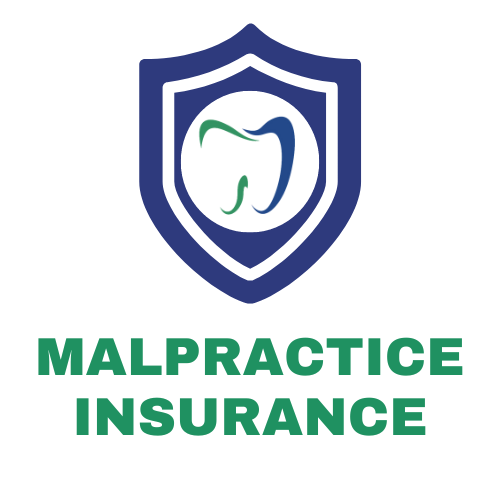The majority of dental assistants will never be sued and will never need liability insurance, commonly known as malpractice insurance.
Malpractice is defined as negligence, which is a lack of ordinary skill, or a breach of duty in the performance of a professional service resulting in injury or loss. Malpractice insurance is a type of insurance that covers professionals against claims of injury or negligence.
The professional liability insurance that ADAA carries to cover its members is one of the association’s highest expenses. As a Board member, you are required to know and understand your fiduciary responsibilities. It was with this fiduciary responsibility in mind, that the Board began researching the necessity of this expense in today’s environment. Here’s a summary of what we found.
Our research included member survey responses, discussions with multiple insurance brokers and data on claims filed. We discovered that very few suits are brought against dental assistants. While anyone can be sued, typically the doctor is the target of a lawsuit. In fact, according to ADAA’s current liability insurance carrier, only three lawsuits have been filed against ADAA members in the past four years. Statistically, dental assistants are 26 times more likely to be struck by lightning than to be sued.
Examples of malpractice lawsuits include:
- Failure to update medical history.
- Failure to thoroughly document in a patient record.
- Injury to a patient.
- Failure to obtain proper informed consent.
Additionally, from the member survey data, over 50% of respondents indicated that they didn’t require this benefit as they were already covered elsewhere or weren’t aware of this membership benefit provided by ADAA.
It is important to note that malpractice insurance will not cover you for illegal activity, purposely altering a patient record or crimes of sexual misconduct or physical assault.
Most state dental practice acts stipulate that the dentist assumes responsibility for their employees’ actions during employment, which includes dental assistants. Furthermore, a dental assistant is under the direct supervision, direction and responsibility of a dentist who employs the dental assistant or is in charge of the dental assistant when the dental assistant performs a delegated dental act. Because of this, most dental assistants are already covered by the doctor’s insurance or a Dental Service Organization’s (DSO) policy. Every dental assistant should be familiar with their state dental board rules and state laws about dental assistant duties because ignorance of the law is no excuse.
Considering the needs of our members and our resources, we determined that nearly 60% of our members are covered elsewhere or no longer require professional liability insurance. This includes students and educators covered by their institutions, Air Force members covered through military service and retired or non-practicing members. Many ADAA members, therefore, don’t need personal malpractice insurance.
Based on our findings, the ADAA Board voted to discontinue the professional liability insurance policy effective April 2024. This was a very difficult and tough decision by the Board. If we were to continue providing it, membership dues would need to increase significantly. At present, the Board believes these funds could be better utilized elsewhere, such as offering more scholarships, improving our website or having more continuing education.
What else do you need to consider as an individual dental assistant?
The Board would encourage all practicing dental assistants, members or not, to ask the important question to their employer as to whether the doctor’s malpractice insurance covers the dental assistant. Knowledge is power. If the dentist cannot tell you, you may take the extra step and contact the carrier of the dentist’s policy.
If you are a practicing dental assistant working on a contract basis, we would strongly encourage you to ask the dentist if you are covered by their policy as some policies have exclusions for contract labor. If you are working for a dental assistant temp agency, you should ask the temp agency if you are covered by their liability insurance policy. Contract labor may be treated differently depending on the state you are operating in. If you find that you are not covered in either of these scenarios, you might want to consider a personal policy for yourself.
The cost for personal liability insurance will vary slightly depending on where you work as well as what functions you provide to patients. For example, according to one carrier we spoke with, if you work in nursing homes or correctional facilities, then the price can change. Each of these carriers directed us to an online site to calculate the cost of annual coverage.
For those dental assistants who want to invest in malpractice insurance, the ADAA will provide referrals to insurance carriers that offer this service. We will not abandon you. The American Dental Hygienist Association (ADHA) and other allied health professions provide a link or referral for their members who wish to purchase personal liability/malpractice insurance.
The ADAA Board feels that communicating with our members is important, and hopefully this information provides the reassurance and time you need to make the best decision for you.
I want to thank Sheila Brown and Veyan Henry who helped conduct this research.
References:
Smith, Tanya. “Is Malpractice Liability Insurance Necessary for Dental Hygienists? Today’s RDH, 2018.
DiFoggio, Whitney. “Do You Really Need Dental Malpractice Insurance?” https://www.teethtalkgirl. com/career/rdh/dental-malpractice-insurance.
Texas State Board of Dental Examiners. Dental Practice Act, Chapter 265.002 Supervision, Direction, and Responsibility. Retrieved from: https://statutes. capitol.texas.gov/Docs/OC/htm/OC.265.htm.
Data from ADAA Liability Insurance carrier: National Fire & Marine Insurance Company.
Interviews with CM & F Group (Jack Kielty, underwriter) and Mercer (now AMBA) (Tim Tholen, underwriter).

